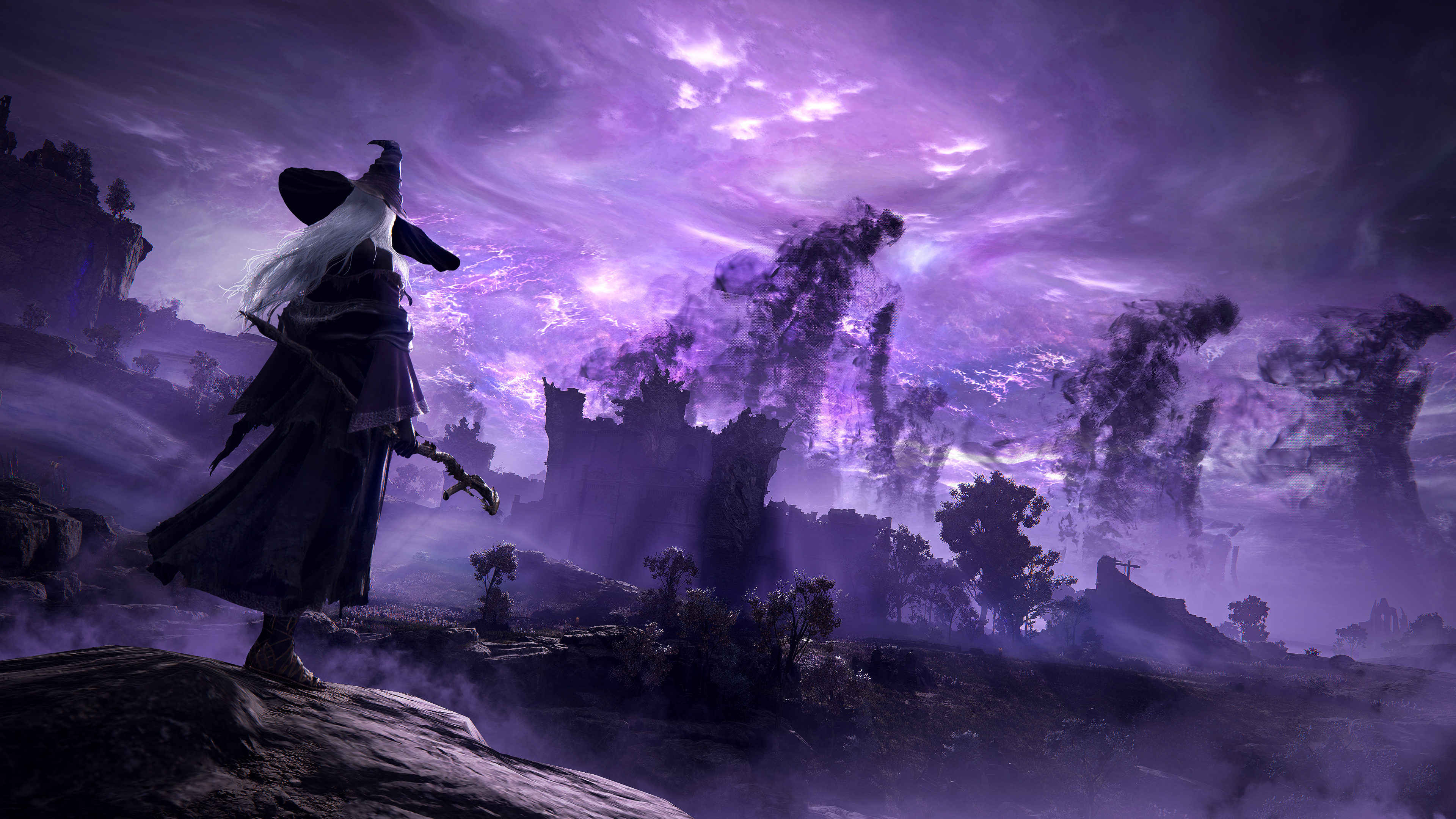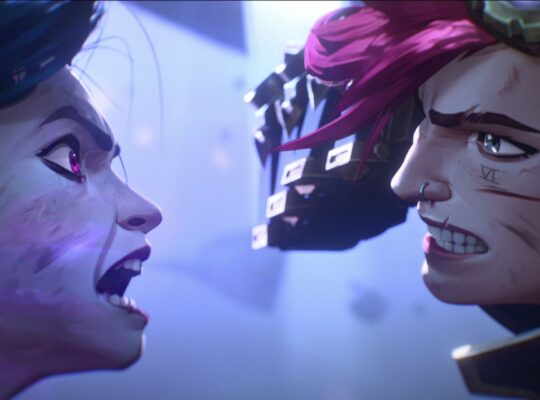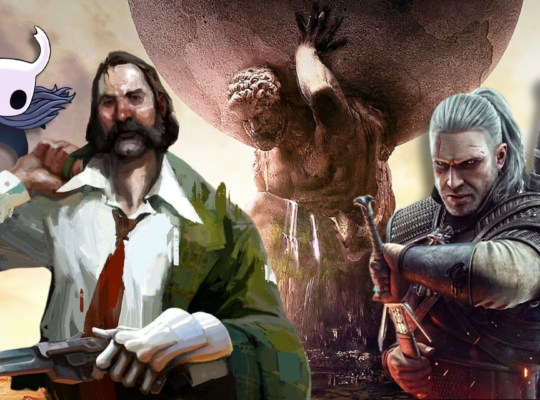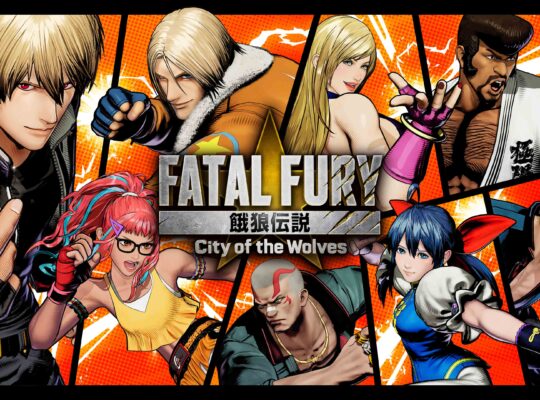From the discovery of sprawling, subterranean otherworlds to the startling second phases that completely turned the tables in so many of its boss fights, 2022’s Elden Ring was a mesmerising action RPG adventure that surprised players at almost every turn. Now, more than two years later it appears that developer FromSoftware isn’t done with pulling the rug out from under the feet of its fanbase just yet, with the surprise reveal of Elden Ring Nightreign, a standalone co-op spin-off that takes the cautious dungeon crawls of Elden Ring and turbocharges them into propulsive, slash ‘n’ dash speedruns. After spending some six hours of hands-on time with this bold new spin on FromSoftware’s own Soulslike formula, I can confirm that Nightreign is shaping up to be something truly unique. If Elden Ring was one of 2022’s biggest chart-topping hits, then Nightreign would appear to be its dance floor-filling remix – chopped up, intensified in beats per minute, and designed to both excite fans of the original and broaden its appeal to the masses.
“Initially when we set out to make Nightreign, we wanted to create what we’re calling a condensed RPG experience,” says Nightreign’s game director Junya Ishizaki. “We wanted to take all those elements from Elden Ring that players enjoyed like the exploration, the building of the character, fighting tough bosses, the sense of discovery, and condense that into a shorter, tighter play session.” (Read more in our FromSoftware interview.)
Here’s how Nightreign breaks down: Imagine stepping back into the opening area from the original game, only nothing in the landscape seems to be where you remember it. Also, there are three of you now, and everything seems to be happening at a much faster pace. That’s Nightreign in a nutshell. You squad up with two other players at the start of each round, get dropped into a densely-packed alternate reality chunk of Limgrave that has both its enemy types and the placements of its castles and forts randomly shuffled around at the beginning of each session, and its up to you and your squadmates to build up from your lowly level-one character status as fast as possible by harvesting runes and weapons as you slash and dash through every enemy-filled camp and castle that you come across.
What’s the big rush? Well, each session of Nightreign is structured as a three-day cycle, with each in-game day taking about 15 minutes to complete. At the start of the first day you can pretty much pick any direction to point your team in – dropping pins on the map to highlight points of interest to the rest of your squad – but as day approaches night the space you can operate in narrows, and you’re liable to be killed by acid-like rain should you find yourself caught for too long beyond the perimeter of the rapidly shrinking circle on the map known as the ‘ring of reign’. (In that regard Nightreign is a bit like Fortnite, only with more medieval forts and knights, and considerably less TikTok dances.)
Once the ring of reign reaches its smallest diameter at the end of the day a boss fight is triggered, one which you and your team will be much better equipped to tackle if you’ve made the most efficient use of Nightreign’s daylight hours boosting your individual character stats and arsenal. Like the rest of Nightreign’s enemies, these end of day bosses are always randomised, and during my repeat runs I experienced clashes with familiar returning nasties like a Demi-Human Queen and Demi-Human Swordmaster tag-team, and a hard-as-nails stoush with a Draconian Tree Sentinel flanked by a pair of Carian Knights. That’s along with some brand-new boss types like the Centipede Demon, a towering, twisting swarm of disgusting limbs prone to detaching body parts in an attempt to divide itself and conquer my crew.
With the day one boss dealt with, day two begins and the ring of reign rescinds, allowing your squad to take a breath, regroup, and then resume ransacking the map for upgrades in preparation for the more challenging boss encounters to come at the end of days two and three. It’s a structure that allows for a gradual build of tension before a palpable sense of accomplishment and release with each boss felled. Over time my squadmates and I became a well-oiled machine as far as getting the balance right between beelining for churches to snatch up valuable HP flasks, and taking down the more major overworld enemies like dragons and hippos in order to get maximum rune boosts for buck before the map was cast into darkness once again.
Squad Goals
We were also able to eventually settle upon the best combination of heroes for our group. You see, Nightreign doesn’t feature the lengthy list of generic character classes that the original Elden Ring did, and players won’t have to Google the difference between vague-sounding archetypes like the Prisoner and Wretch when they first hop in to play, for example. Instead, Nightreign offers eight different heroes to choose from, each with very clearly identified strengths and weaknesses in order to make it as easy to pick up and play as possible.
Four were playable in the preview build. Wylder is an all-rounder hero type with a good balance between speed and attack power, Guardian is a burly tank type with heavy attacks and increased damage resistance, Duchess is a nimble type with fast attacks and a killer quickstep ability, and Recluse is a mage type with ranged magical attacks. Ishizaki did hint at two more characters that will be playable in the final game, including one who will have the ability to raise a pillar of rock out of the earth to climb up and snipe arrows from, and another who will have command of their own Spirit Ash, which I very much like the sound of since I relied on those summonable spectral bodyguards in order to beat almost every boss fight in the original game. (Yes, I’m a coward.)
Additionally, each character features a unique skill and ultimate attack that both operate on cooldown timers. Wylder is able to use his hook shot skill to either reel in smaller enemies, a la Scorpion in Mortal Kombat, or to quickly zip past the swinging arms of a major boss in order to sneak a few strikes in from behind. Guardian is able to conjure up a mini tornado to knock swarms of enemies off their feet, while Recluse can put a marker on an enemy so that every time that enemy is attacked, the damage is siphoned into boosts for her own HP.
These unique abilities are all extremely useful in their own right, but finding ways to combine them with the special moves of your squadmates is key to surviving Nightreign’s toughest enemy encounters. One strategy that my squad grew to rely on quite heavily was to unleash a damaging ultimate attack on an enemy, such as Guardian’s swooping divebomb, then immediately follow it up with Duchess’ Restage skill, which basically creates an instant replay of the last attack landed and allows you to double the total amount of damage inflicted.
It’s in finding killer combinations of moves such as these that the co-op focus of Nightreign really shines, and it eventually allowed my squad to progress – after multiple failed attempts – through to the third day of the cycle, which climaxed in a fight against a snarling, cerberus-like beast called Gladius. This triple-headed hell hound is capable of powerful, wide area attacks with a chain-like whip, and it can also split into three individual wolves that forced my team to coordinate and queue up skills and ultimate attacks with painstaking precision in order to overcome it.
Gladius is just the first of eight major bosses to take down in Nightreign, each with their own three-day cycle leading up to them. In addition to the randomisation of enemy types and structures, further wrinkles will be introduced into each boss cycle such as live volcanoes and forests full of rot in an effort to prevent the landscape from ever growing too predictable. That’s along with random events like meteor strikes, swarms of giant ants to fend off, and the surprise invasion of powerful tormentors in an attempt to impede your progress. During my hands-on my team was regularly stalked by Margit, the Fell Omen, who you likely remember as the butt-kicking bouncer found outside Elden Ring’s Stormveil Castle, and having him pursue me across the map like some sort of Tarnished terminator was a consistently terrifying experience – especially on the occasions I found myself isolated from the other two members of my power trio. (It’s worth noting, you can absolutely take on invading bosses like Margit, and beating them rewards you with a ‘Favor of the Night’, which is a random buff like boosting your maximum HP or increasing the recharge speed of your ultimate attack.)
Reigning It In
In addition to the approachability of its roster of playable characters, Nightreign has polished up a lot of Elden Ring’s more abrasive edges to make it a far more friction-free experience. A new wall-jump move allows you to quickly hop up and over steep sections of the terrain, while the removal of any fall damage means you can lunge off cliffs or down dark holes without stopping to study your surroundings for safe platforms. You only need to walk near a site of grace to top up your health and flasks, and if you want to spend some runes to level up you just button mash through pages of auto-levelling that best suits the base traits of your chosen character, rather than having to agonize over whether you should allocate a point to faith or dexterity, for example.
It all gives each session the feeling of being shuttled along in an intense speedrun. There are also distinctive-looking trees to find scattered around the map which, when interacted with, launch your character into the air and allow them to glide over long distances while dangling from the claws of a spectral hawk. I found these particularly useful for getting fast access to lucrative rune-farming spots, like the time I skipped a castle crawling with basic soldier types and flew straight to its roof – where a giant troll awaited.
Then there’s the complete absence of any equip load weight management. New weapons are found either in treasure chests or Destiny-style loot drops after a fight, and you can equip up to three armaments per hand without worrying about how they’ll affect your movement speed. You also don’t really need to worry about ever being underlevelled for any particular weapon, either – if you find it, you can generally pick it up and use it – and the passive effects of any given weapon such as lightning attacks or boosted stamina regeneration will apply to your character while they’re in your arsenal whether you’re wielding them or not. Meanwhile, you don’t need to collect and equip new armour at all, instead you can find and collect various buffs to damage resistance and the like by hunting through sorcerer’s towers or mining caves.
Death is not necessarily the end in Nightreign, either. If you find yourself downed you have a ‘near-death’ meter that appears above you, and your squadmates must attack you while you crawl along the ground until the meter is reduced and you can return to the fray. It may sound slightly odd to basically kick a friend while they’re down, but it’s a system that works quite well – particularly since you can use ranged attacks like magic or crossbows to revive a downed squadmate from a distance without the risk of putting yourself in harm’s way. In fact, I found that it can also be a solid strategy to keep your ultimate attack up your sleeve as a potential revival tool – during one boss fight I found both my partners wiped out at the same time, and I was able to revive them both in one literal fell swoop by blasting them with Guardian’s divebomb.
Nightreign is thankfully a little more lenient on you during the day. If you die before you can be revived by a squadmate, you’re able to respawn with full health – you’re just penalised one level of your character’s progression, which can admittedly be fairly costly given that the highest level I ever reached during the three-day cycle was level 14. However, although you can revive downed players during an end-of-day boss fight there are no actual respawns during these climactic moments, and should all three of you be wiped out at once it’s the end of the session and you must restart day one with everyone back at level one. So you need to stay on your toes in order to keep the rest of your squad on their feet whenever possible.
In between sessions you return to the Roundtable Hold hub, where you can practise your attack combos in the training yard, study up on enemy strategies and character lore in the codex, or spend the currency you earn from each run – known as ‘Murk’ – to buy character emotes and customisable skins from the merchant. It’s in the Roundtable Hold that you can also configure each character’s relics. These are permanent attribute buffs that are unlocked after each session, and you can slot three of them into each character to further tailor them to your playstyle – one relic might boost a character’s maximum HP and allow them to deal extra damage with throwing knives, for example, while another might substantially boost attacks from heavy thrusting swords, which is handy if you favour the Godskin Stitcher or the Bloody Helice. Longterm FromSoftware fans will recognise these relics as being reminiscent of Bloodborne’s blood gems.
While there’s no doubt that elements of it are inspired by the likes of Destiny and Diablo IV, it needs to be said that Elden Ring Nightreign is not a live service game. Once you buy it you get access to the complete package, and there are no battle passes or microtransactions to contend with. It can also be played in singleplayer should you wish to stay offline, with enemy health pools that scale down so that it’s not too overwhelming for solo players (although curiously, there are currently no plans to allow players to play in pairs). All this is to say is that fans shouldn’t be concerned that Nightreign is at any risk of being dead on arrival like recent notable disasters such as Concord or The Day Before, and certainly the team at FromSoftware seems very confident in its multiplayer offering regardless of the fates that have befallen other online-only launches.
“We don’t tend to look at the industry and base our game design or our concerns on what’s going on in a more general sense,” says Ishizaki. “We feel like if we’re making something we’re passionate about and that we want to make and that we enjoy playing, we trust the users will share in that experience and hopefully enjoy it too.”
As someone who has sunk hundreds of hours into Elden Ring, both in the original 2022 game and this year’s Shadow of the Erdtree DLC, I can confidently say that FromSoftware is onto something truly spectacular with Nightreign. Cutting throats at breakneck speed with a pair of friends in tow has been a consistently exhilarating experience so far, and especially gratifying when you work together to topple its fiercest bosses using each character’s special abilities in tandem. Dark Souls diehards may well be quick to dismiss it as some sort of Elden Ring: Arcade Edition due to its heavily streamlined settings, but the potential scope of its relic system still leaves plenty to tinker with for fans who want a bit more stop and think along with their hack and slash. Assuming the developers can throw enough randomised elements to keep each three-day assault feeling fresh, then Elden Ring Nightreign could well provide an exciting change of pace for existing fans, and an enticingly accessible entry point for newcomers when it launches sometime in 2025.












